Navigating the Path to Peace, Justice, and Prosperity via AI
Speech by: Wisdom Addo, Executive Director of West Africa Centre for Peace Foundation
Distinguished guests, organizers of the AI forum, esteemed colleagues, and friends, It is an honor to address you today at the AI for Developing Countries Forum. My remarks is centered on, “Navigating the Path to Peace, Justice, and Prosperity via AI,” is both timely and critical as we explore the transformative potential of artificial intelligence in addressing the pressing challenges faced by developing nations.
At the West Africa Centre for Peace Foundation, we have long believed in the power of education and community engagement as fundamental pillars for building sustainable peace. Our mission is simple yet profound: to nurture a generation of young leaders committed to peace and justice. Through our PeaceJam program, we have partnered with Nobel Peace Laureates to inspire and guide our youth, empowering them to become agents of change.
PeaceJam is more than an educational initiative; it is a movement that transforms lives. Our trainings, workshops, conferences, and mentoring sessions have demonstrated the transformative power of peace education. Young individuals, once constrained by their circumstances, have emerged as confident, compassionate leaders ready to tackle global challenges.

Artificial intelligence can amplify these efforts exponentially. Imagine AI-driven platforms providing personalized education, bridging educational gaps, and offering real-time mentoring to our youth. AI can help us reach remote communities, offering them the same learning opportunities available in urban centers. It can analyze data to identify pressing community needs, allowing us to tailor our interventions more effectively.
Moreover, AI has the potential to revolutionize our peacebuilding efforts. Predictive analytics can help us foresee and mitigate conflicts before they escalate, while machine learning algorithms can analyze patterns and suggest the most effective peacebuilding strategies. By leveraging AI, we can create more resilient communities where justice and prosperity are not just aspirations but lived realities.
How do we harness AI for Justice?
One of the most profound ways AI can impact our societies is by enhancing the justice systems. Governments can harness AI to make justice more accessible, efficient, and equitable for all citizens. Here are several ways I think this can be achieved:
- Streamlining Legal Processes: AI can automate routine legal tasks such as document review, case filing, and legal research. This can significantly reduce the backlog of cases in courts, ensuring timely justice for all.
- Predictive Policing: AI can analyze crime data to predict potential criminal activities, allowing law enforcement agencies to allocate resources more effectively and prevent crimes before they occur. However, it is crucial to ensure that these systems are designed to avoid biases that could unfairly target certain communities.
- Access to Legal Aid: AI-powered chatbots and virtual assistants can provide legal advice and information to individuals who cannot afford legal representation. This democratizes access to legal resources, ensuring that everyone has the opportunity to understand their rights and seek justice.
- Judicial Decision-Making: AI can assist judges by providing data-driven insights and precedents that help in making informed decisions. While AI should never replace human judgment, it can serve as a valuable tool in ensuring consistency and fairness in rulings.
- Monitoring and Accountability: AI can be used to monitor judicial processes and detect any signs of corruption or bias. By ensuring transparency and accountability, AI can help build public trust in the justice system.
Restorative Justice: AI can facilitate restorative justice programs by matching victims and offenders in a structured dialogue process. This can help repair harm and promote reconciliation in communities.
Achieving UN Sustainable Development Goal 16
As we discuss these transformative potentials, it is essential to align our efforts with the United Nations Sustainable Development Goals (SDGs). Specifically, goal 16 aims to promote peaceful and inclusive societies, provide access to justice for all, and build effective, accountable institutions at all levels.

AI can play a crucial role in achieving goal16 by enhancing the efficiency and accessibility of justice systems, promoting transparency, and fostering inclusive governance. By leveraging AI, we can create systems that are not only fair and just but also resilient and adaptive to the needs of all citizens, particularly those in underserved communities.
At the West Africa Centre for Peace Foundation, we are committed to contributing to this global agenda. Our collaboration with Nobel Peace Laureates has taught us the importance of ethical leadership and the human touch in every technological advancement. As we integrate AI into our peacebuilding and justice efforts, we must ensure that it is guided by the principles of empathy, equity, and justice that underpin our work.
I am excited about the potential collaborations and innovations that will emerge from this forum. Together, we can harness the power of AI to create a world where every young person has the opportunity to thrive, where justice is accessible to all, and where peace is not just a distant dream but a tangible reality.
Thank you for your dedication and commitment to this cause. Let us navigate this path together, leveraging AI to build a future marked by peace, justice, and prosperity for all.

